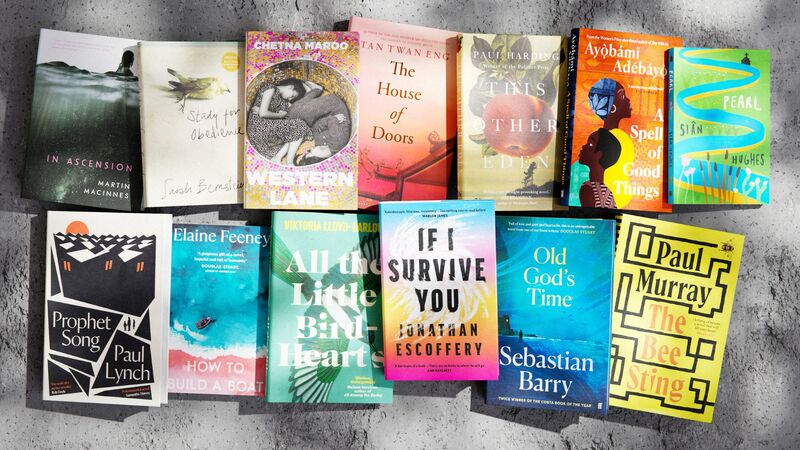You are viewing your 1 free article this month. Login to read more articles.
Giles Milton: Slave to the Sultan
Scanning the opening chapters of Giles Milton's latest history, White Gold (Hodder, 7th June, h/b, £18.99, 0340794690), the reader could be forgiven for wondering whether she or he has inadvertently stumbled into the world of fiction.
The story Milton explores--that of a white slave trade operating in North Africa throughout the 17th and 18th centuries, with an estimated one million Europeans in total held captive--is an astonishing one. There are startling revelations, such as the activities of the Moorish corsairs who regularly raided the Cornish coast and abducted local villagers for a life of slavery in Africa. Between 1609 and 1616 alone, "the Sallee Rovers", as they were called in England, captured nearly 500 English trading ships.
It appears that a significant historical episode has been dropped from our dominant narratives of Europe's powerful seafaring past: the story of a time when the sovereigns of Britain and the other great nations were comprehensively held to ransom by the Muslim rulers of North Africa, who demanded a sizeable price for the return of any of their captives.
Milton--who as well as writing his books of history is also a long-time travel journalist--stumbled over the story on visits to Morocco, a country he loves. A distant relative used to have a home there.
"I stayed with my relative, who had a marvellous library of books on Morocco, and it must have been in the early 1990s that I first discovered the story of the white slave trade, and particularly of this Sultan who fascinates me, Moulay Ismail--he was both ruthless and despotic, yet must have also been quite brilliant to remain on the throne for 50-odd years."
Moulay Ismail's vast palace at Meknes is now in ruins, and people have built their homes among its walls. But trudging around what little is left, Milton was impressed by the grand ambitions with which the buildings had been constructed.
"We have this idea of Europe as having always been this great powerful block that dictates terms to everyone else. It's really interesting that actually not that long ago in history there was a period where the Sultan of Morocco would see himself on at least equal terms with any of his European contemporaries--if not as their superior. The vast palace that Moulay Ismail built was almost certainly done as a conscious rival to Louis Quatorze and the palace at Versailles which was being built at exactly the same time."
Milton tells the wider story of the slave trade through a focus on one personal history, that of the Cornishman Thomas Pellow, who was captured by pirates in 1716 when he was a mere cabin boy, and kept as a slave of Sultan Moulay Ismail for more than two decades. When he finally escaped and returned to England, Pellow published an account of his experiences.
"Thomas Pellow's story is interesting because everything that could happen to a slave happened to him," Milton says. "He was forcibly converted to Islam--which was not unusual, but not usual either, because your master knew that once you'd been converted your home government would never pay money to buy you back--and he was made a personal slave of the Sultan so he had an inside view of how the palace worked. He was even made a guard of the harem doors at one point.
"And he was married off--the Sultan actually had a breeding programme for slaves, linking European captives with black slaves from equatorial Africa, because he believed 'mulattos' worked harder.
"I've tried to tell the story through the original sources as I did with Nathaniel's Nutmeg and my other books--at first I assumed not many of the sources would have survived, because if you're a slave, how the hell do you write letters and get them home? But because the Sultan had an interest in selling them back to their home governments, he allowed there to be an English consul posted to Morocco, and through this consul their letters would get back to England."
Many of the letters--relating terrible sufferings and brutal treatment--were heart-rending to read. Equally painful were the desperate attempts made by wives and families back home in England to get their loved ones back: "There were petitions got up and sent to London on behalf of two or three thousand women at any one time who had lost their husbands," Milton says. "It was a big issue."
The subject of White Gold is obviously resonant in several ways, offering an additional perspective to the history of slavery, and an early instance of conflict between Islam and the West. The Sallee Rovers were hailed by their Islamic brethren as religious warriors fighting a jihad against the unbelievers; plenty of anti-Islamic literature was published in England in response.
Milton says he felt he had to step with caution in both these regards: "You have to be very careful in relation to the black slave trade--you can't draw too many comparisons because that and the white slave trade are two different things, and the black slave trade was on a different scale.
"And I didn't want to draw any modern parallels [with the Christian/Islamic conflict] because I thought it was a completely dangerous thing to do. I've left it very understated."
Benedicte Page









